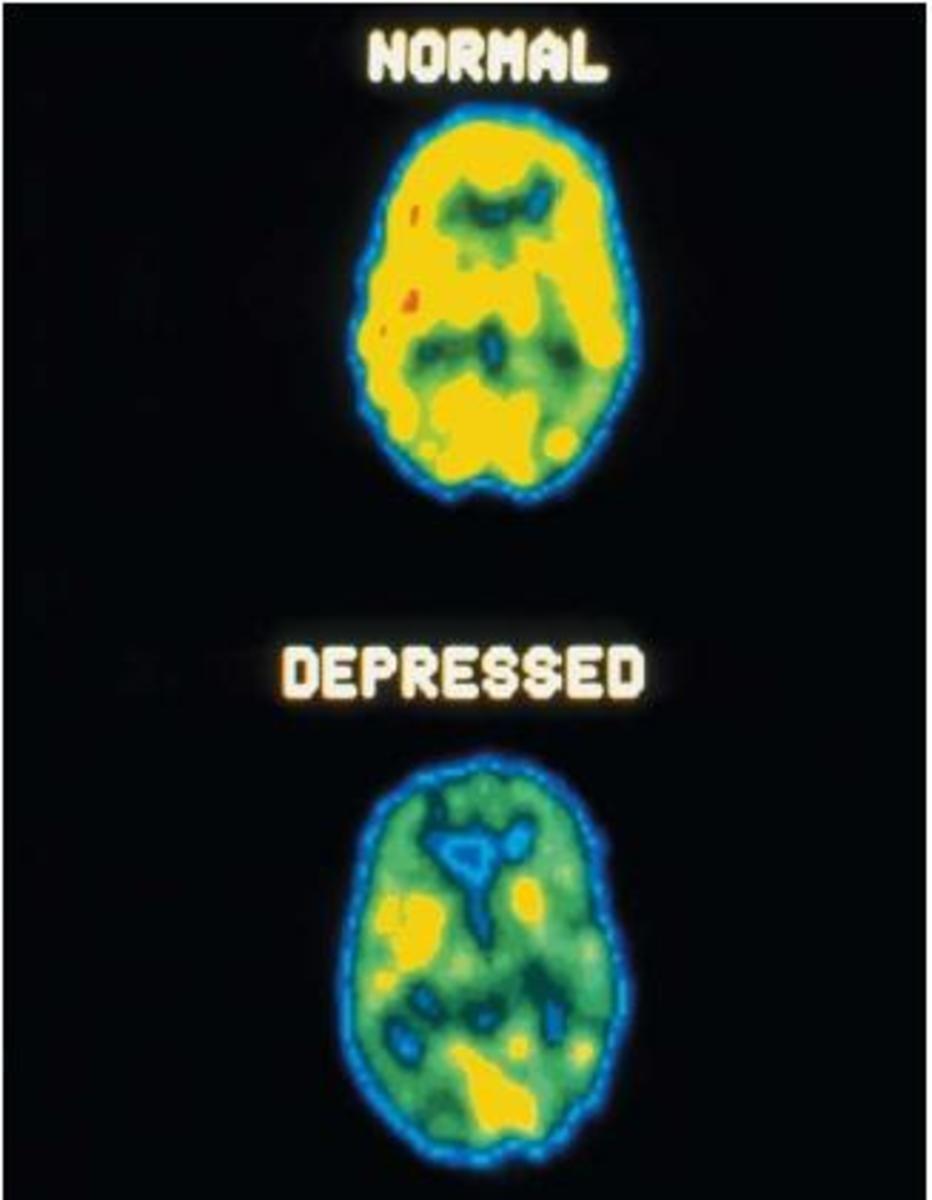Depression is not Simply a “Chemical Imbalance” – A Personal Story about Dealing with Depression
The Start of my Battle to Deal with Depression
I have suffered from Clinical Depression; in fact my life was controlled by this mental illness for over two years. Like many sufferers, I was told by my Doctor that it was down to a chemical imbalance in my brain and prescribed SSRI medication – the most well known is Prozac.
After almost two years of feeling worthless, unable to focus, lack of self esteem, lack of sleep, too much sleep, and thoughts of death, bouts of unexplained anger then tearfulness and more - I finally snapped.
What happened to the strong independent woman I was?
Why was I now an emotional wreck, afraid to leave my house and meet people?
Why didn’t I care about things I loved in the not so distant past?
So, I started my journey to recovery. Like many depression sufferers, I was aware of things I needed to change in my life, but even the smallest of tasks seemed impossible.
But, start I did – first by reading. What an eye opener that was!
Well meaning friends (before I pushed everyone away!) suggested positive affirmations to lift my mood and feel better about myself. Needless to say, they did not work, in fact I felt worse – then felt worthless because I couldn’t even succeed at self help!
I discovered that Researchers at the University of Waterloo and the University of New Brunswick found that those with low self-esteem actually felt worse after repeating positive statements about themselves.
That small discovery was such a relief! I really can’t explain the difference in how I felt about myself. I now knew it wasn’t just me.
More reading around the subject was needed...

Depression is a Learned Behaviour
Say what? Surely you can't learn to be depressed!
I sat and thought on this for a while, then did more reading, particularly Dr. Yapko who has quite a few articles and books published on the subject.
I had lived with my husband for 16 years, who for most of that time suffered from depression. All his family – his parents, aunts etc had been on medication for depression for years. Was it possible I had “learned” my lack of emotional coping skills from this environment?
Well I could jolly well unlearn!
I set out a plan of action, small (very small at first!) daily goals and objectives. I learned some simple techniques to deal with my sudden anger, and quick stress relief relaxation methods.
I also set up my “journal of fail” where I wrote all my bad experiences, thoughts and feelings. Rather than sit feeling sorry for myself, I countered it with positive outcomes from those experiences. This worked much better than positive affirmations
Slowly, I began to see the light again. I stopped going to see the doctor. I started writing again. My mood swings evened out. But still there was something missing, some days were better than others. I still had terribly “down days”.
And then I had a “bingo!” moment.
Sleep.
Lack of sleep, insomnia, oversleeping, tiredness, lethargy – all symptoms of depression... Or are they?
I stumbled on an interview with Joe Griffin, a research psychologist.
It has been known for over 40 years that people suffering with depression dream much more than people who don’t suffer from depression. We have excessive REM sleep which is not restful.
Joe Griffin researches sleep and what he and his team discovered is that depression sufferers deal with their negative feelings while they sleep too – hence the dreams and lack of restful sleep.
When we feel emotionally charged, we need to release that emotion. Our brain has to close the cycle. Healthy people deal with their emotions – good or bad on a day to day basis.
What happens with people who are depressed is we don’t deal with or have an outlet for an excess of negative emotion. So when we sleep our brain discharges that emotion as dreams. Healthy people may dream then go on to true sleep. Depressed people dream a lot, often have their sleep disturbed by those dreams and have very little true restful sleep.
So a vicious cycle starts.
I needed a bigger outlet!
There are chemical imbalances. Stress hormones are higher in depressed people. That’s hardly surprising since we are stressing and in fight or flight mode even while we sleep! Serotonin and other neurotransmitters are lower, but this has been shown to be a symptom of the depression rather than the cause.
What really is scary though is not only are Doctors, the press, the drug companies still going on about “chemical imbalances” being the cause of depression rather than a symptom but that SSRI drugs are only effective for treating the symptoms in around 35% of depression sufferers.
35% that is just over a third! What sort of success rate is that?
So, the drug companies introduced SNRI drugs – guess what – they aren’t that effective either. Next will be TRI, being released around now. Shall we take a bet on their effectiveness?
There is still a lot of research being done on the causes of depression and other mental illnesses. Depression is the fastest growing illness worldwide. It affects people of all ages in most cultures.
Yet we are still fed half truths and spin.
The secret appears to be learning how to deal with your emotions and meeting your emotional needs not pill popping.
Further Reading
Some of Dr Yapkos recent articles are available for download on his website http://www.yapko.com/ and make interesting reading about how depression can be a learned response.
The Role of Dopamine and Norepinephrine in Depression http://www.primarypsychiatry.com/aspx/ArticleDetail.aspx?articleid=1066
Is Clinical Depression Caused by a Serotonin Imbalance? http://stanford.wellsphere.com/mental-health-article/is-clinical-depression-caused-by-a-serotonin-imbalance/562288
I'm unable to find the original article from Joe Griffin regarding sleep patterns, but a copy of his interview is available here http://www.clinical-depression.co.uk/depression_article.html










